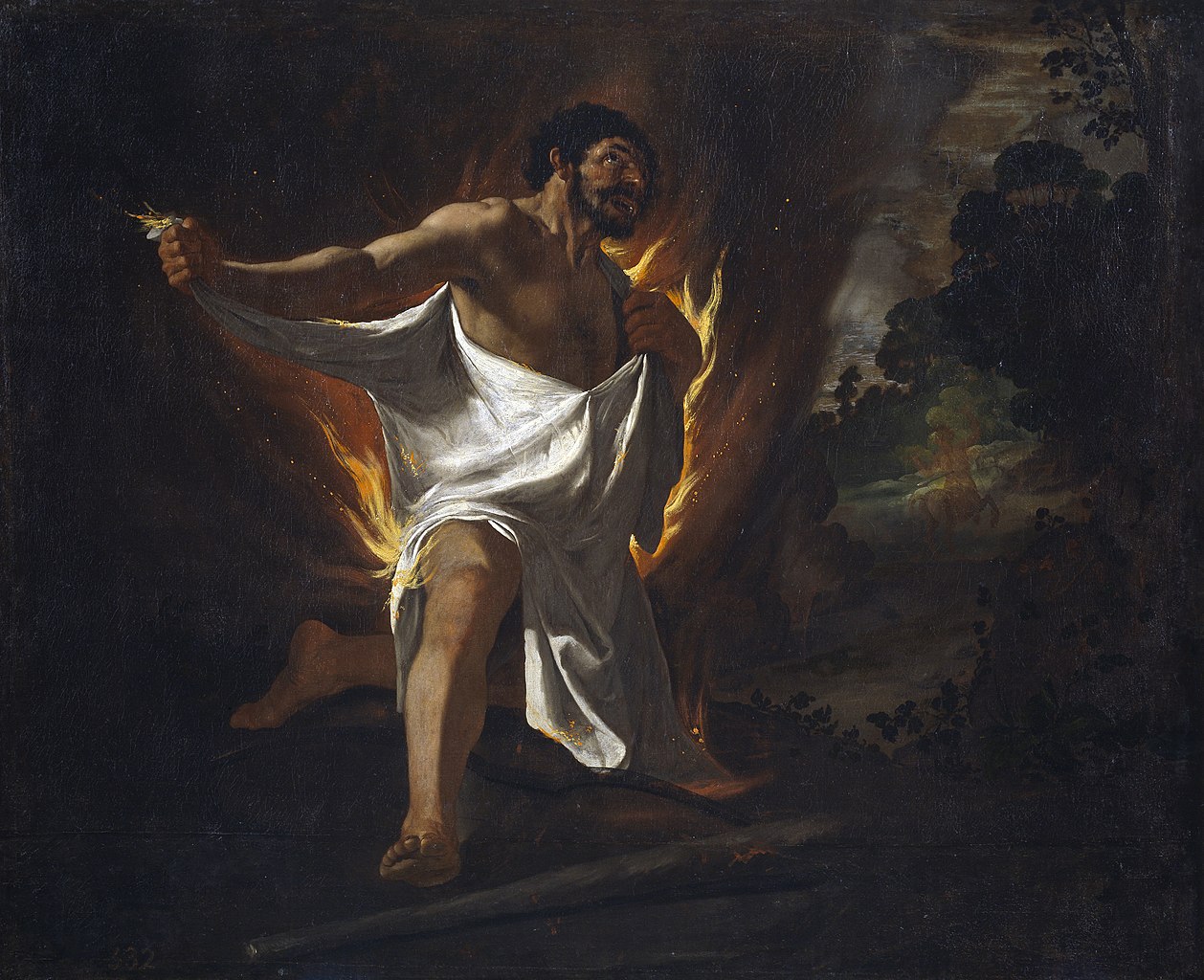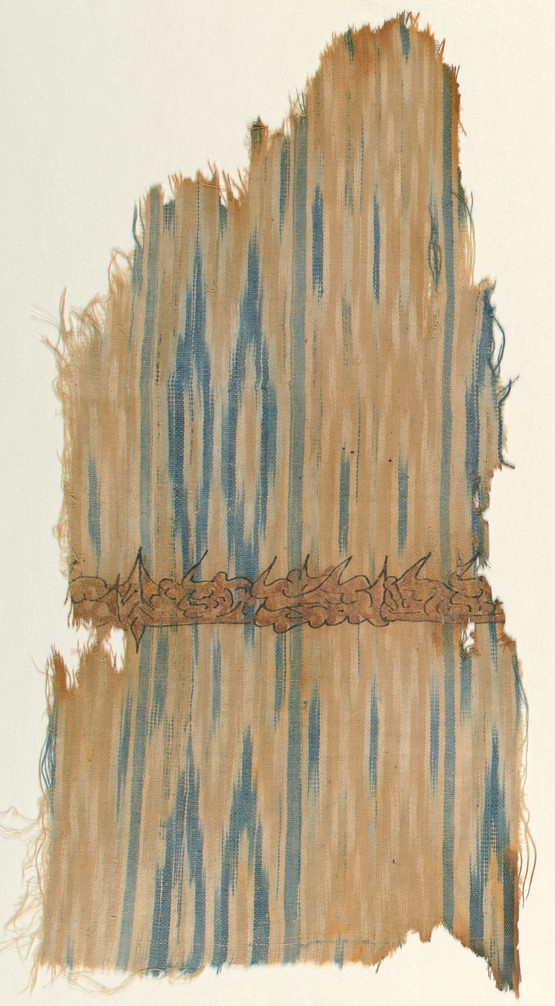Although there is no historical evidence by which a first discoverer of oil and its properties might be singled out, classical Arabic tradition can be identified as the premodern linguistic culture most permeated by words for oil, in its onomastics, proverbs, and poetry going back to pre-Islamic times. Occurrences of the word nafṭ in classical verse have modern political implications, highlighting the historical priority of the Arabs where oil is concerned, and the falsehood of Western claims to it. On this point, it should not go without saying that Western notice of oil in the region began with an Arab merchant from Bahrain, who mentioned it to a quartermaster of the British army while at Addis Ababa. That officer resigned his post forthwith and transferred to the Gulf in search of oil.
The word nafṭ calls attention for its antiquity and its particularity, indicating that Arabs have understood oil's nature for over 2,000 years. It denotes the reality of oil better than terms in use by the Europeans who, judging from basic appearances, called it petroleum, that is, "rock oil," as if it were a culinary oil pressed from rock. The Arabic designation of nafṭ is less naïve, designating a rare substance with distinct properties [from those of botanic oils, which are called in Arabic by a different word]. But those who hypothesize a relation between nafṭ and nabt "vegetation" [best defended through a shared connection to nabṭ, which is "the issue of water from the ground"] hit on the fact that geological oil is an organic substance. This would not preclude the possibility that nafṭ entered Arabic from another cultural domain, or that it derives from more ancient languages.
Nafṭ has an array of meanings in Arabic. As a substantive noun, it refers to petroleum. As an epithet, it conveys the sense of boiling, sneezing, or furious anger; correspondingly, the verb nafaṭa yanfiṭu is said of a pot [when it boils], a goat [when it sneezes], and a man [suffused by anger]. Nafṭ also signifies a blister filled with fluid that appears on the hand after manual labor. There is clear affinity among these meanings, in that they all have to do with the emergence of something with force and violence. And although this similitude was incomprehensible until modern times, the topology of an oil deposit resembles that of a blister on the skin.
Nafṭ also carries the meaning of tar (qār), which is properly speaking a category of nafṭ. Ibn Manẓūr in Lisān al-‘arab (art. √qwr) states that "Qār is a black substance that camels are smeared with [to treat their mange], and also boats, in order to prevent water from seeping in." The Arabs were well acquainted with the fundamental properties of tar, in particular the intensity of its blackness and the impossibility of its taking on other colors. There are many proverbs to this effect, such as "I'll do that when tar turns white" [i.e., never]. In Averroes's commentary on the Posterior Analytics (I.6), he mentions [tar, saying: "Whereas predication of essential attributes is possible when these are substances, it is necessary when they are accidents, in] the way that white is predicated of snow, and black is predicated of qār." [....] And Mu‘āwiya al-Ḍabbī said (meter: ṭawīl):
Until I see tar gleaming like the dawn [mughraban],
or I see the mute stones speaking, I am stuck here.
The word mughrab is glossed as "white" in Lisān al-‘arab (art. √ghrb), where the verse is explained: "The poet wound up in a spot that was disagreeable to him, from which rescue was impossible unless tar should turn white, or stones begin speaking—things that do not and should not happen in the normal course of events." These proverbial expressions are sufficient to indicate that petroleum was a familiar, everyday part of early Arab life.
After the entry of the Mongols into Baghdad at the end of the Abbasid Dynasty, the scientific heritage of the Arabs suffered major losses, especially in the discipline of chemistry. However, the poems and stories that remain have a lot to tell us. Poetry has many functions, one of the most important being the witness it bears to matters that are not otherwise recorded, thereby preserving the history of the nation. Even low forms of verse spoken hundreds of years ago have important political and sociohistorical implications for our time. Among these is the fact that the Muslims of Baghdad were familiar with petroleum. Nor were they the only ones, but—as indicated in books of Islamic law and history, as well as poetry [of the 9th century CE]—Muslims were the first to establish a legal and administrative framework for the utilization of oil, which they extracted from deposits called nafāṭāt. The city of al-Qayyāra outside Baghdad was so named precisely for the number of nafāṭāt in that region. And Dhū Qār [site of the famous battle] was nothing but a boggy area where oil rose to the earth's surface.
To oversee the qayyārāt and nafāṭāt and regulate their exploitation by the oil sector, the Abbasid caliph appointed an "oil czar" (wālī al-nafāṭāt), whose office resembled present-day ministries of oil. This is attested in verses [by ‘Abd al-Ṣamad ibn al-Mu‘adhdhal] appearing in al-Zamakhsarī's Campsite of the Righteous, later quoted in the chapter "On vices of governorship" in Ibrāhīm ibn Muḥammad al-Bayhaqī's Virtues and Vices [and, before either of these, in the Virtues and Their Opposites of al-Jāḥiẓ] (meter: ṭawīl):
By my life! You put on such pompous airs,
as if ministering from the dais of al-Faḍl ibn Marwān.
And if, Abū 'l-‘Abbās, you governed in his stead
as my superior, I would not expect your character to change.
How proud would you be of musk and ambergris,
if you're this proud to oversee pools of nafṭ?
Brook your hauteur. Don't lose your humility.
A governor of nafṭ ought not be haughty.
One of the topmost authorities of energy law in our time—a British legal counselor to the World Bank and a number of oil-rich countries—was reduced to amazement when I recited these verses and explained them to him, for Westerners think they were first to bring oil extraction within the domain of law in the late nineteenth century. And these verses highlight the fact that the Abbasids were the first to do this.
From "Political Implications of the Word Nafṭ in Classical Arabic Tradition" (2018), a blog post by Anas Alhajji











